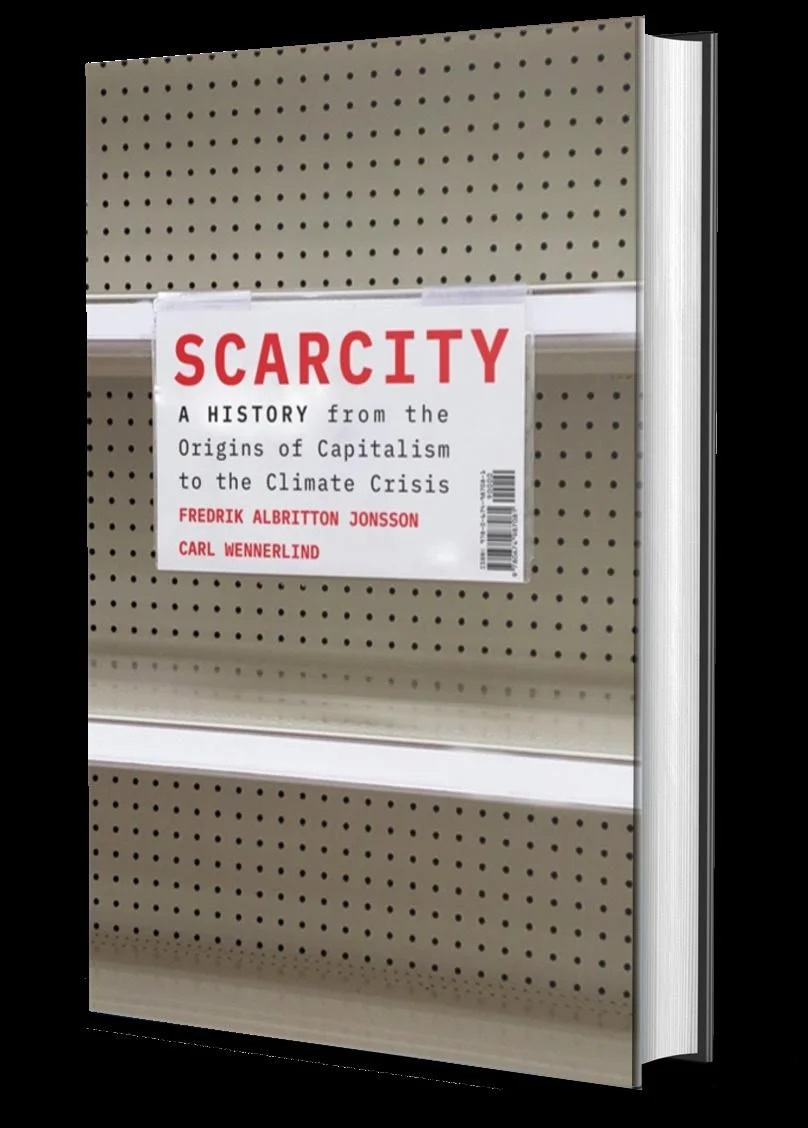Book talk: Scarcity: A History from the Origins of Capitalism to the Climate Crisis (Harvard University Press, 2023).

Time: Thu 2024-03-14 13.00 - 15.00
Location: Big seminarroom, Teknikringen 74D, floor 5
Language: English
Participating: Fredrik Albritton Jonsson (University of Chicago) & Carl Wennerlind (Barnard College & Columbia Uni)
In this event the authors of Scarcity: A History from the Origins of Capitalism to the Climate Crisis (Harvard University Press, 2023) will present their new book and open up a discussion about writing Anthropocene history. Modern economics has entered a turbulent moment. While the field has achieved a dominant position in the political realm as a trusted authority on matters of markets and growth, it has largely failed to engage in a serious manner with the looming planetary crises: the twin threats of climate change and biodiversity loss. In Scarcity: A History from the Origins of Capitalism to the Climate Crisis, the authors suggest that the neoclassical assumption of scarcity locks us into a particular understanding of the nature-economy nexus that fails to reckon with the central role of the earth system and biodiversity in human flourishing. The next generation of social scientists will need to develop a more holistic understanding of the relation between the economy and the biophysical envelope of life on Earth. To inspire fresh thinking, the book takes the reader back five centuries and shows how people in the past have theorized the interplay between economy and nature. The book offers a genealogy of both Cornucopian thinking (ideas of infinite growth in American and European tradition) and Finitarian thinking (discourses about limits of desire and limits of nature), showing when and how distinctive notions of scarcity have emerged over time.
Fredrik Albritton Jonsson is an Associate Professor of British History, Conceptual and Historical Studies of Science at the University of Chicago. He is the author of the monograph books Enlightenment's Frontier: the Scottish Highlands and the Origins of Environmentalism (Yale, 2013) which investigates the environmental roots of the Scottish Enlightenment and Green Victorians: The Simple Life in John Ruskin's Lake District (Chicago, 2016), coauthored with Vicky Albritton, which considers the problem of the Anthropocene from the perspective of a late Victorian utopian movement.He specializes in British history, with a focus on questions of environmental change, science, and political economy in the period 1700-1900. His current research deals with two closely related themes: What were the historical origins of the fossil fuel economy, and how did this transition give rise to a concept of indefinite growth in political economy? In methodological terms, his research is oriented towards the environmental humanities and the problem of assimilating multi-scalar earth-system science, particularly the concept of the Anthropocene, into historical scholarship.
Carl Wennerlind is Professor of History at Columbia University and specializes in the history of early modern Europe, with a focus on intellectual history and political economy. He is particularly interested in the historical development of ideas about money and credit; ideas on the relationship between economy and nature; and ideas about "improvement" and "modernization." Currently, he is working on a book on early modern Swedish political economy (tentatively titled, Atlantis Restored: Empire, Wealth, and Knowledge in Early Modern Sweden). In addition to his co-edited volumes David Hume’s Political Economy (with Margaret Schabas) and Mercantilism Reimagined: Political Economy in Early Modern Britain and its Empire (with Phil Stern), Wennerlind’s work has appeared in journals such as the Journal of Political Economy, American Historical Review, Journal of Economic Perspectives, History of Political Economy, and Hume Studies.

